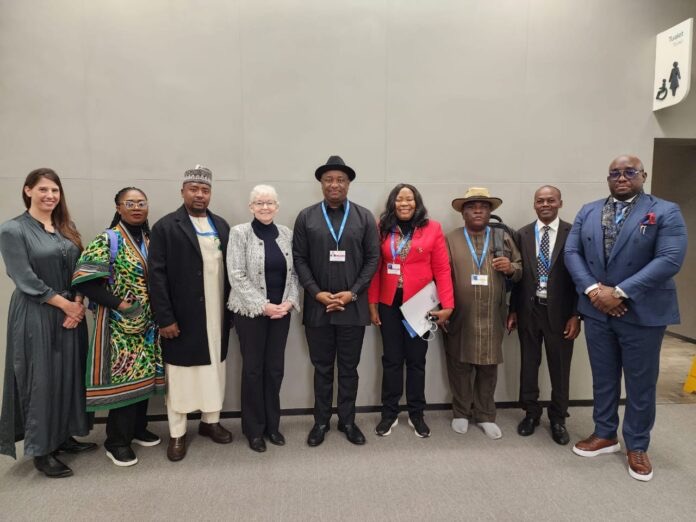By Cecilia Ologunagba
UN Secretary-General António Guterres on Tuesday urged nations to increase contributions to a fund supporting developing countries impacted by climate change.
Guterres made the appeal at a high-level dialogue on loss and damage funding during the COP29 UN climate change conference in Baku, Azerbaijan.
“In an era of climate extremes, loss and damage finance is a must, I urge governments to deliver. In the name of justice.
“The world is getting hotter and more dangerous, which is “not a matter for debate”, and “climate disasters are piling up – harming those who’ve done the least, the most,” he said.
“Meanwhile, those that contribute more to the destruction – particularly the fossil fuel industry – continue to reap massive profits and subsidies,” he added.
Guterres described the creation of the Loss and Damage Fund as “a victory for developing countries, for multilateralism, and for justice,” but stressed that its initial capitalisation of $700 million “doesn’t come close to righting the wrong inflicted on the vulnerable.”
In fact, this figure is roughly the annual earnings of the world’s 10 best-paid footballers, he said, and does not even account for a quarter of the damage caused in Viet Nam by Hurricane Yagi in September.
“We must get serious about the level of finance required,” he said. “I urge countries to commit new finance to the Fund. And to write cheques to match.”
As “bilateral flows alone won’t suffice”, he called for new responses, and new sources, to meet the scale of need.
In this regard, he urged countries to agree a new climate finance goal that taps innovative resources.
“We need to implement solidarity levies on sectors such as shipping, aviation, and fossil fuel extraction – to help fund climate action. We need a fair price on carbon,” the UN chief said.
“And, more broadly, we also need to support Multilateral Development Banks in order to increase the lending capacity so they are fit to respond to the climate crisis.”
Meanwhile, in a new report presented at COP29 on Tuesday, the UN refugee agency (UNHCR) said climate change has become a growing threat to people already fleeing war, violence and persecution.
The report, “No Escape: On the Frontlines of Climate, Conflict and Displacement” calls on governments to take stronger action to slash greenhouse gas emissions which cause global warming and climate change.
The agency’s first ever report on the impact of climate change found that of the more than 120 million forcibly displaced people worldwide, three-quarters live in countries heavily impacted by rising emissions.
Half are in places affected by both conflict and serious climate hazards, such as Ethiopia, Haiti, Myanmar, Somalia, Sudan and Syria.
Furthermore, the number of countries facing extreme climate-related hazards is expected to rise from three to 65 by 2040, and the vast majority host displaced people.
Similarly, most refugee settlements and camps are on track to experience twice as many days of dangerous heat by mid-century.
The UN High Commissioner for Refugees, Filippo Grandi, said climate change is “a harsh reality” that profoundly affects the lives of the world’s most vulnerable people.
“The climate crisis is driving displacement in regions already hosting large numbers of people uprooted by conflict and insecurity, compounding their plight and leaving them with nowhere safe to go,” he added.
At COP29, UNHCR is calling for increased climate finance that reaches those most in need.
The agency is also urging states to protect forcibly displaced people who face the additional threat of climate disasters, and to give them and host communities a voice in finance and policy decisions. (NAN) (www.nannews.ng)
CIA/TAK
Edited By Tosin Kolade






